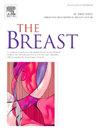Acute presentations in neoadjuvant chemotherapy/immune checkpoint inhibition for triple negative breast cancer: experiences and impact from real-world data
IF 7.9
2区 医学
Q1 OBSTETRICS & GYNECOLOGY
引用次数: 0
Abstract
Background
Recent data showed benefit of the addition of immune checkpoint inhibitor (ICI) therapy to cytotoxic chemotherapy in the neoadjuvant setting for patients with early triple negative breast cancer. Acute presentations in patients treated with ICI therapy and combined chemotherapy/ICI therapy can be challenging and have significant resource implications.
Materials and methods
A prospective analysis was performed at a specialist oncology hospital in England from December 1, 2022 to December 31, 2024. The primary outcome measure was whether the acute presentation was due to an ICI-related toxicity. Secondary outcome measures were number of inpatient bed days and the proportion of patients with grade ≥3 diarrhoea or transaminases that were diagnosed with ICI-related toxicity.
Results
During the study period, 285 patients were treated with neoadjuvant PC-EC/Pembro for triple negative breast cancer with 210 emergency presentations in 168 patients to the acute floor. Fifty-three (25.2 %) patients were diagnosed with an ICI-related toxicity of which 5 were a relapsed/recurrent presentation. One hundred and nine patients (51.9 %) were discharged on the day of presentation. A total of 576 inpatient bed days were used in the management of the cohort.
Sixteen (7.6 %) patients had grade 3 diarrhoea at presentation; only 5 (31.3 %) of these were ICI-mediated. Eleven (5.2 %) patients had a grade ≥3 ALT rise at presentation; only 3 (27.2 %) of these were ICI-mediated.
Conclusion
In triple negative breast cancer being treated in the neoadjuvant setting with chemotherapy/immune checkpoint inhibition only 25.2 % of acute presentations had an ICI-related toxicity driving their attendance. Toxicities in this cohort may require a different approach to those treated with chemotherapy or ICI alone and may necessitate new clinical practice guidance.
新辅助化疗/免疫检查点抑制治疗三阴性乳腺癌的急性表现:来自现实世界数据的经验和影响
最近的数据显示,在早期三阴性乳腺癌患者的新辅助治疗中,在细胞毒性化疗中添加免疫检查点抑制剂(ICI)治疗是有益的。接受ICI治疗和联合化疗/ICI治疗的患者的急性表现可能具有挑战性,并且具有重要的资源意义。材料与方法前瞻性分析于2022年12月1日至2024年12月31日在英国一家肿瘤专科医院进行。主要结局指标是急性症状是否由ici相关毒性引起。次要结局指标是住院天数和诊断为ici相关毒性的≥3级腹泻或转氨酶患者的比例。结果在研究期间,285例三阴性乳腺癌患者接受了新辅助PC-EC/ pembroo治疗,168例患者中有210例急诊。53例(25.2%)患者被诊断为ici相关毒性,其中5例复发/复发。109例患者(51.9%)在就诊当天出院。该队列的管理共使用了576个住院天数。16例(7.6%)患者就诊时出现3级腹泻;其中只有5例(31.3%)是由ci介导的。11例(5.2%)患者就诊时ALT升高≥3级;其中只有3例(27.2%)是由ci介导的。结论:在新辅助化疗/免疫检查点抑制治疗的三阴性乳腺癌中,只有25.2%的急性表现有ici相关的毒性,促使他们出席。该队列的毒性可能需要与单独化疗或ICI治疗不同的方法,可能需要新的临床实践指导。
本文章由计算机程序翻译,如有差异,请以英文原文为准。
求助全文
约1分钟内获得全文
求助全文
来源期刊

Breast
医学-妇产科学
CiteScore
8.70
自引率
2.60%
发文量
165
审稿时长
59 days
期刊介绍:
The Breast is an international, multidisciplinary journal for researchers and clinicians, which focuses on translational and clinical research for the advancement of breast cancer prevention, diagnosis and treatment of all stages.
 求助内容:
求助内容: 应助结果提醒方式:
应助结果提醒方式:


